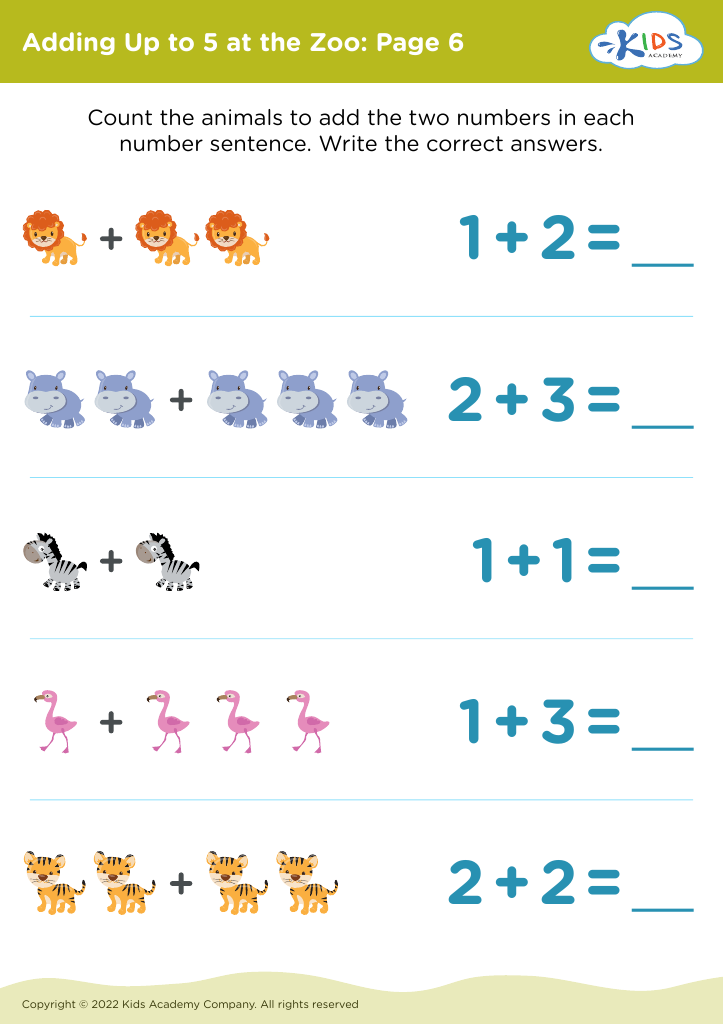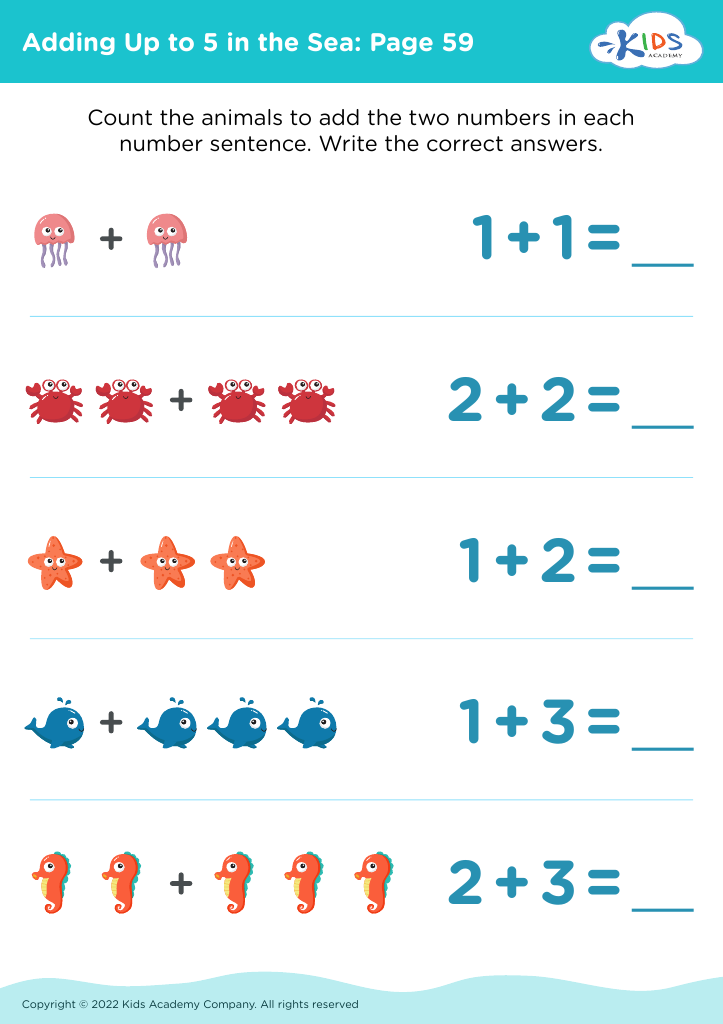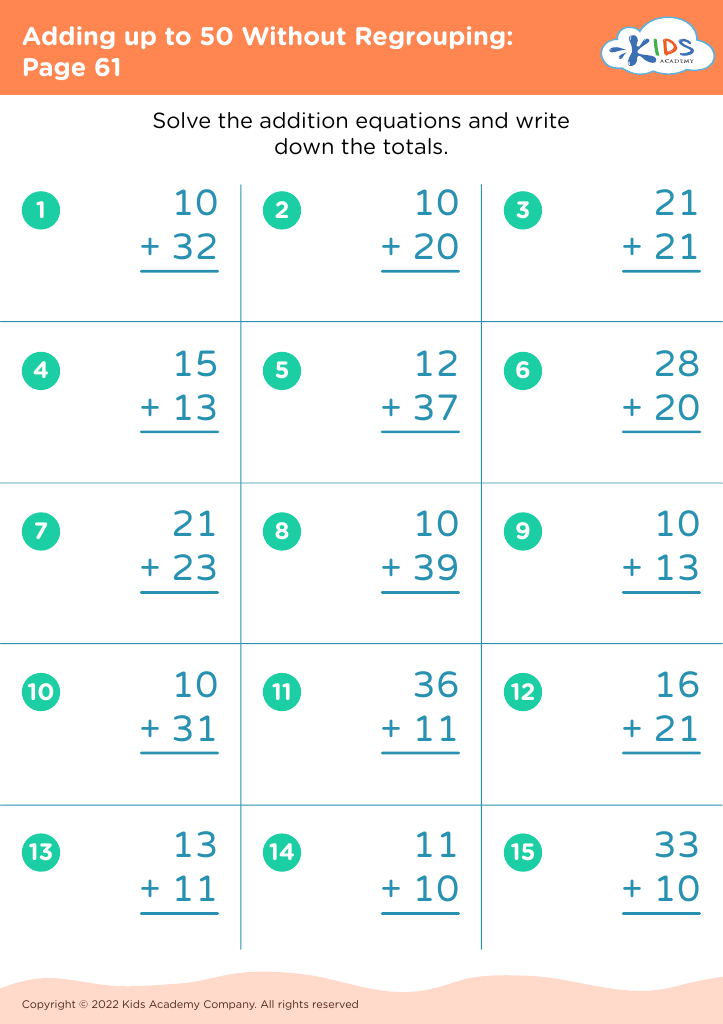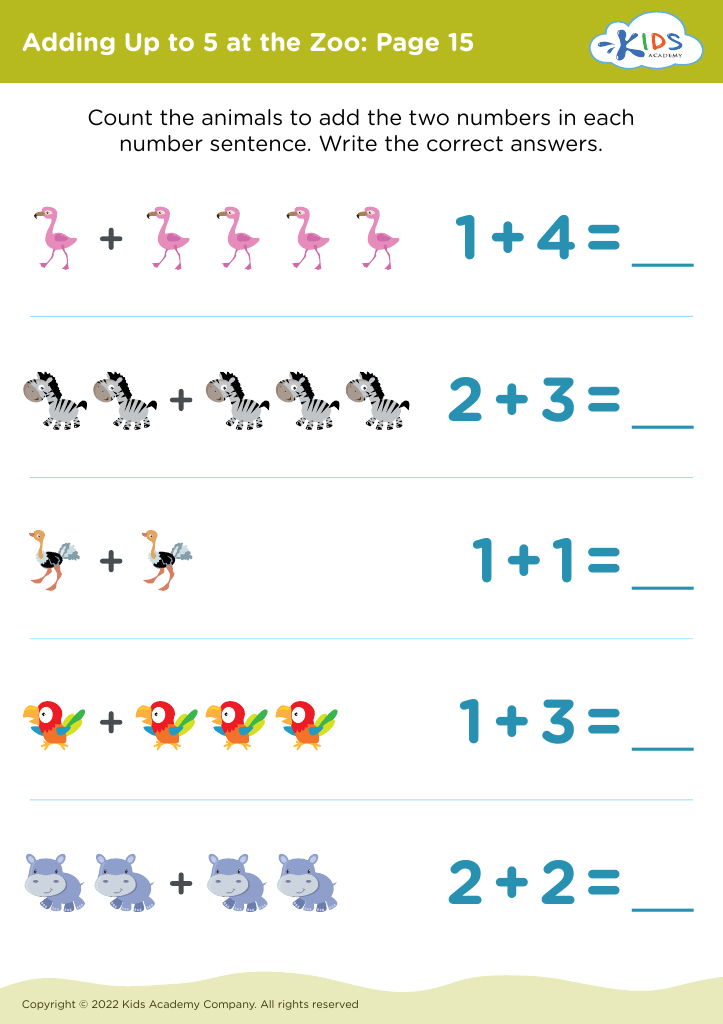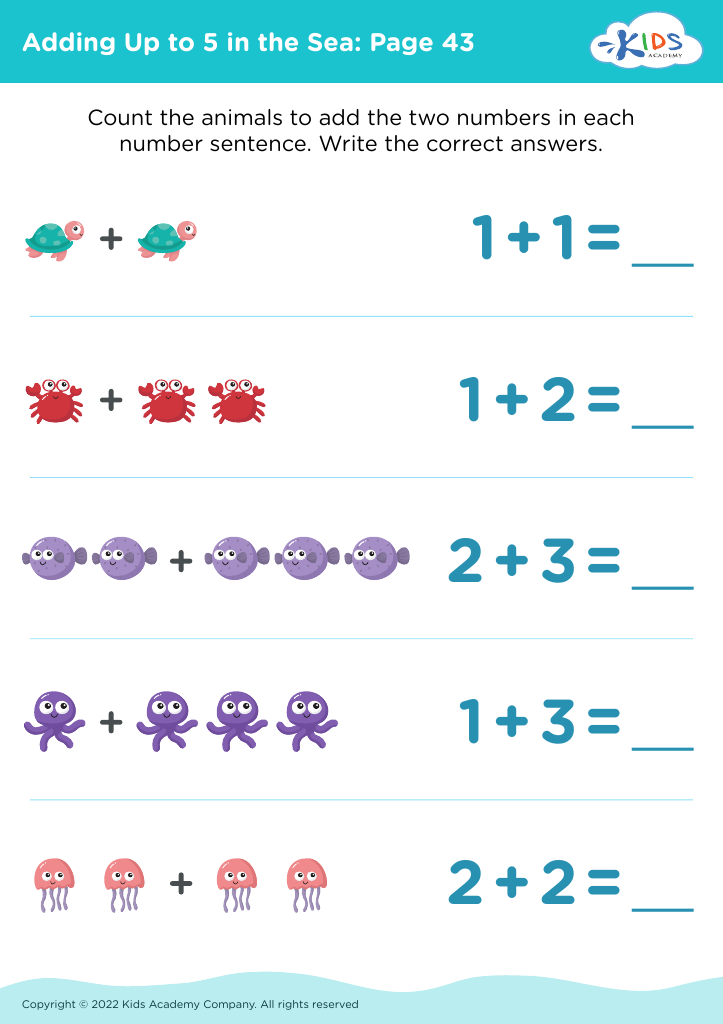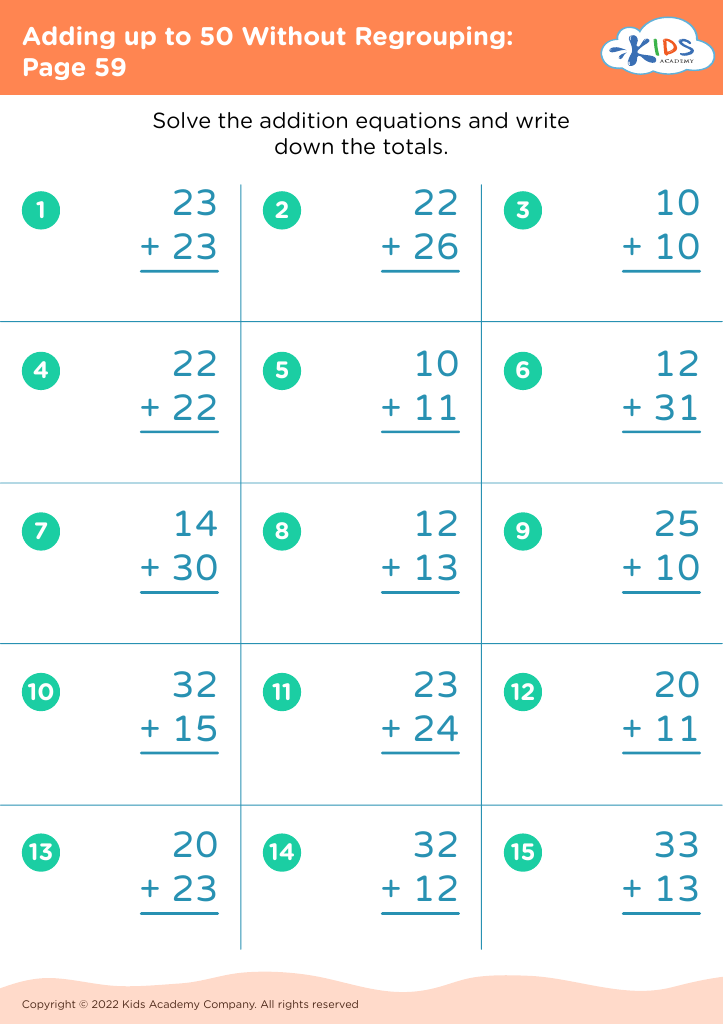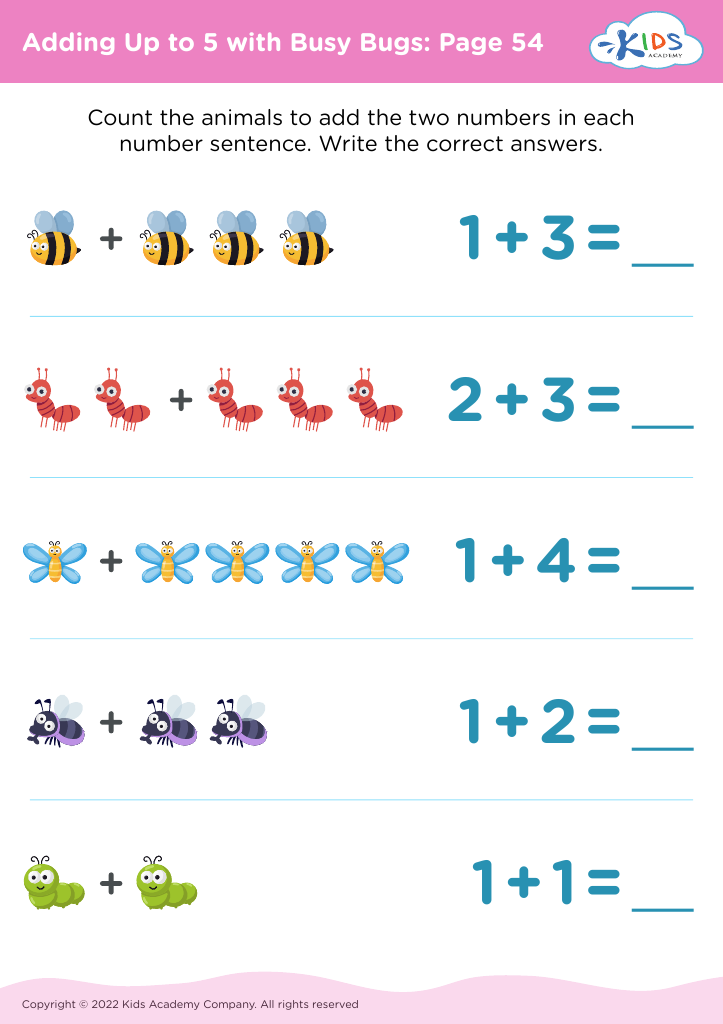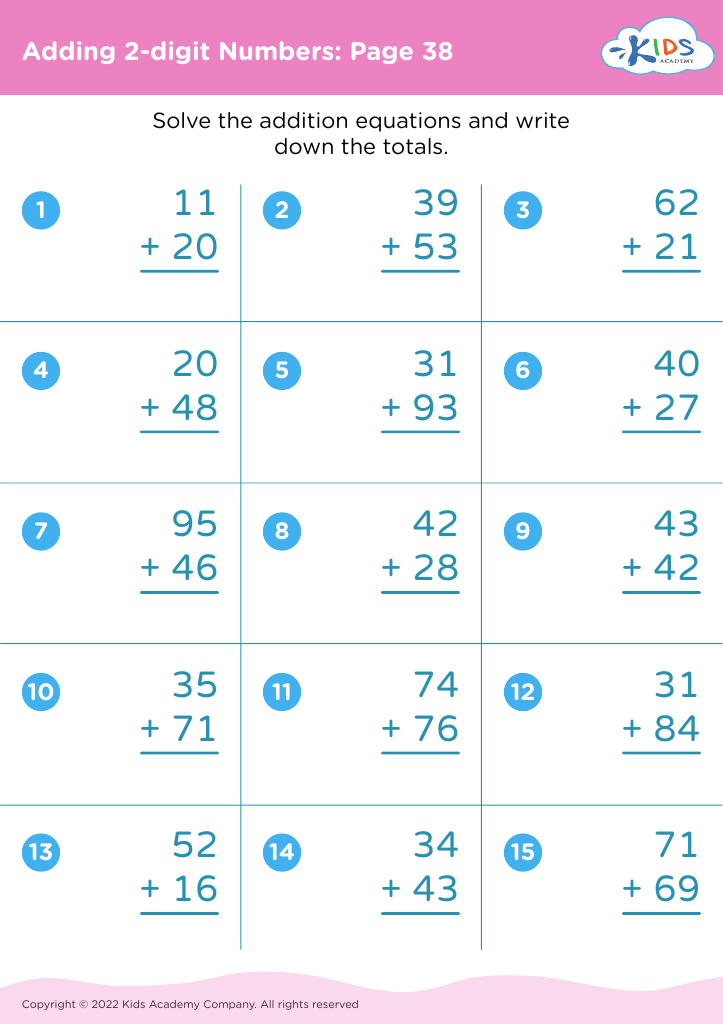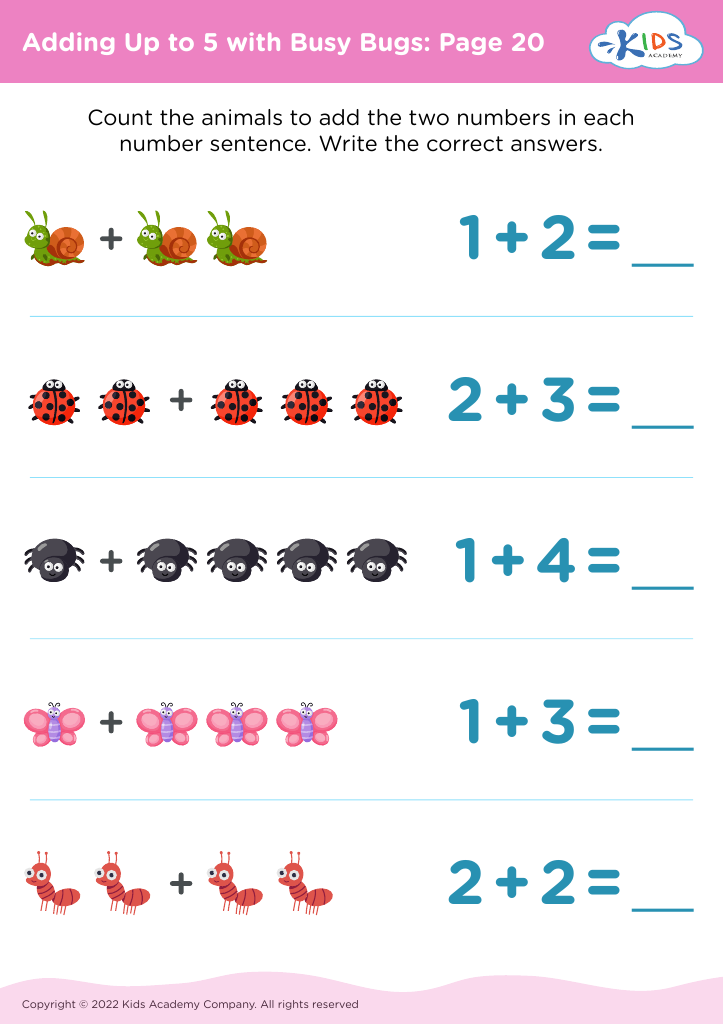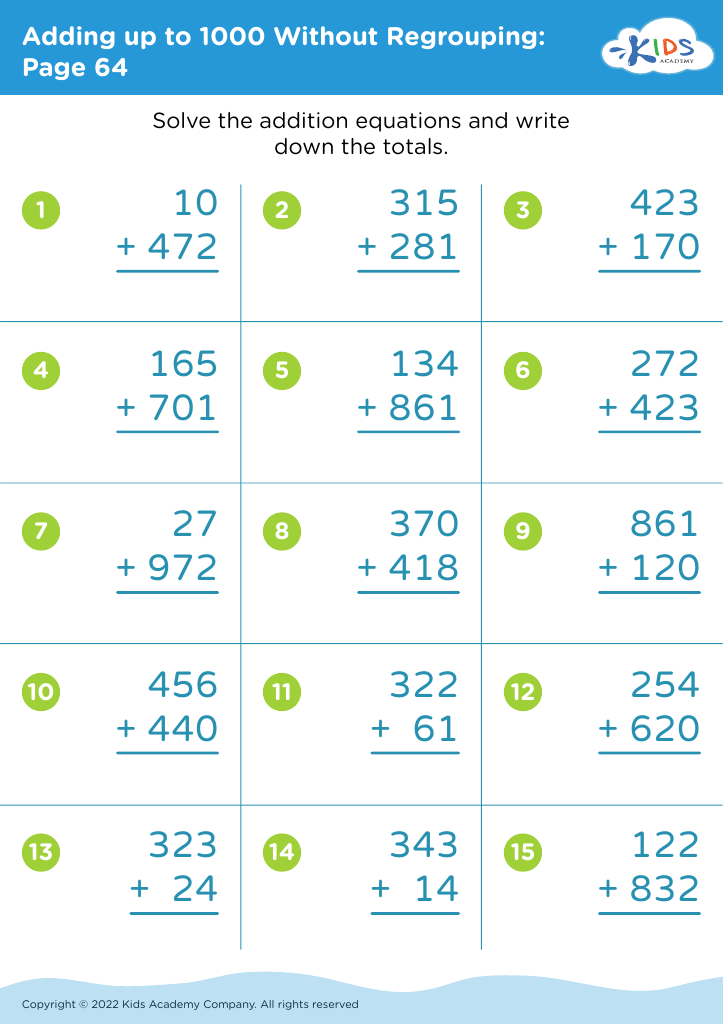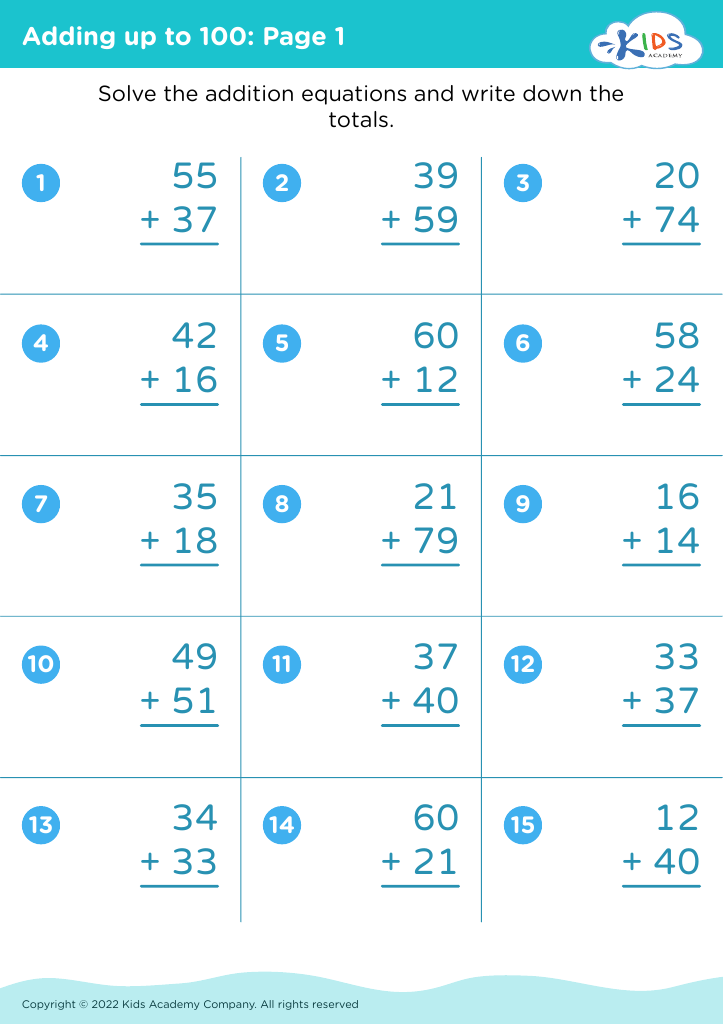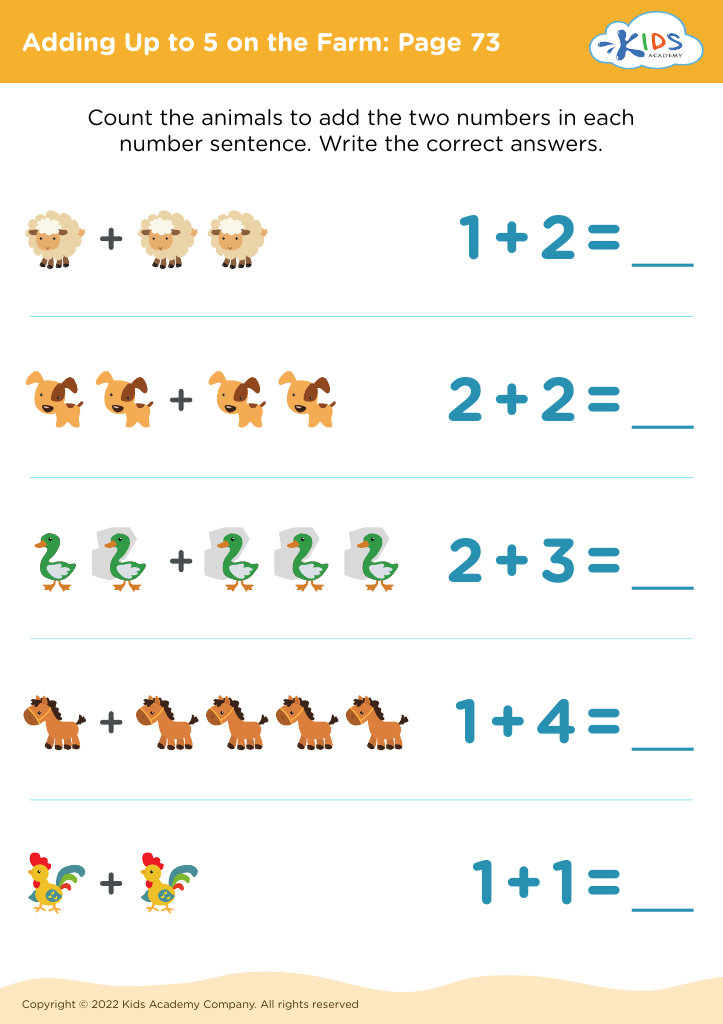Basic addition practice Addition & Subtraction Worksheets for Ages 3-8
19 filtered results
-
From - To
Help your child master basic addition with our engaging and educational worksheets, specially designed for ages 3-8. At Kids Academy, we provide a wide variety of fun activities and problems that gradually build foundational math skills. Our Basic Addition Practice Worksheets feature bright illustrations, intuitive layouts, and age-appropriate challenges to keep young learners motivated. As children work through the exercises, they will develop confidence and fluency in addition, preparing them for more advanced math concepts. Download now and make learning an enjoyable experience for your little one with Kids Academy!
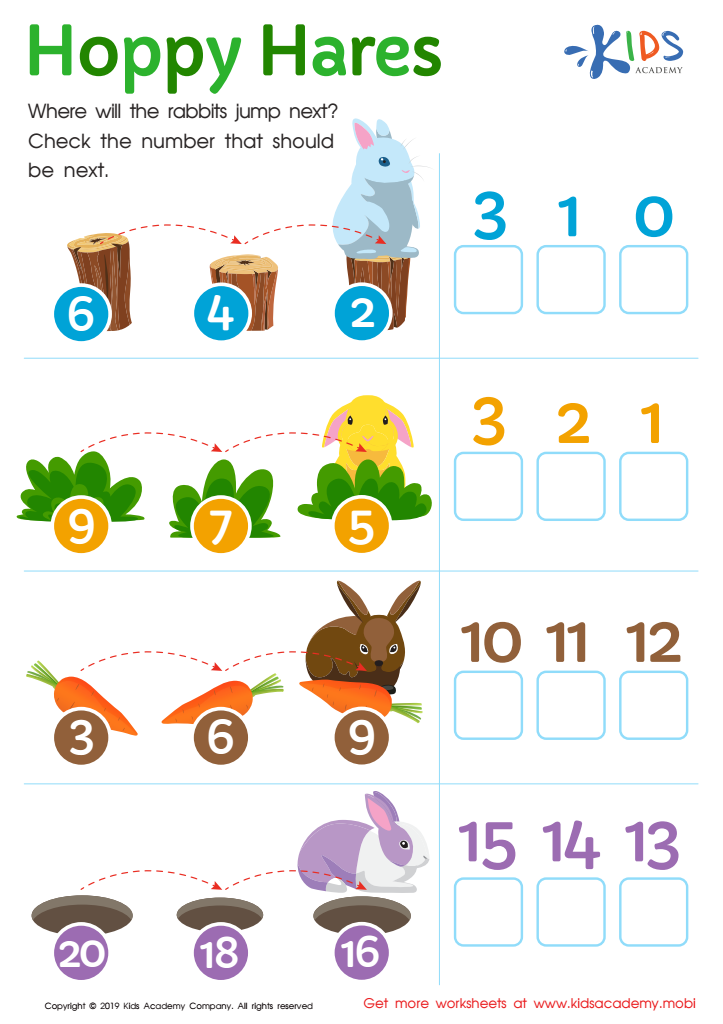

Hoppy Hares Worksheet
Parents and teachers should prioritize basic addition and subtraction practice for children aged 3-8 as these foundational skills are critical for their mathematical development. Mastery of basic arithmetic at an early age lays the groundwork for more complex mathematical concepts and problem-solving skills needed later in life. Engaging in addition and subtraction exercises helps young children develop their numeracy, which is essential for understanding patterns, relationships, and the rules within mathematics.
Early exposure to these skills also enhances cognitive development by strengthening memory, attention, and logical thinking. It equips children with the confidence needed to approach more advanced math topics, reducing anxiety and creating positive associations with learning. Further, these abilities are applicable in real-life situations, such as handling money or measuring ingredients, fostering practical understandings and preparing them for daily challenges.
Moreover, integrating basic math practice into daily routines, play, and educational activities encourages active learning, keeps children engaged, and makes mathematics fun. Overall, ensuring consistent practice of these fundamental skills during the formative years provides a strong mathematical foundation that supports academic achievement and future success in various arenas of life.
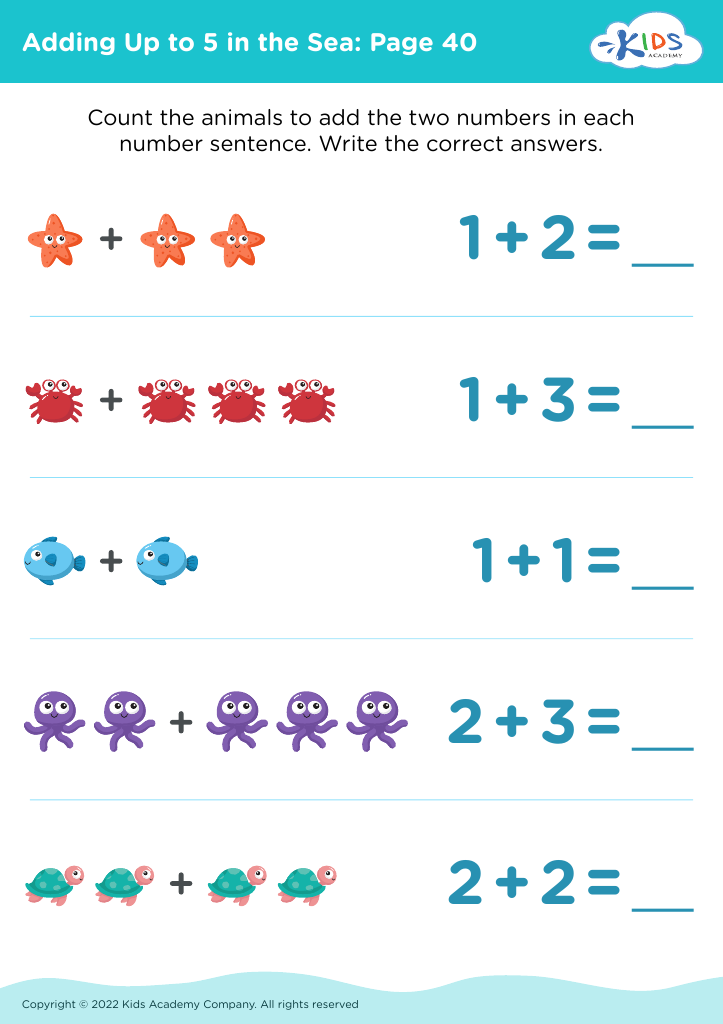


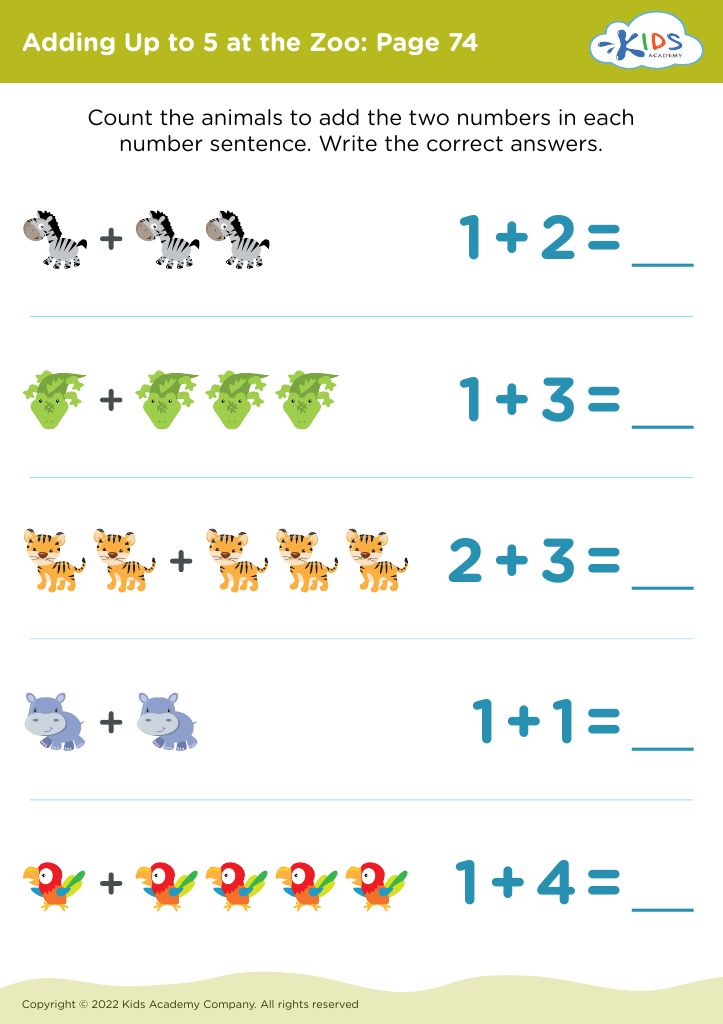
 Assign to My Students
Assign to My Students

